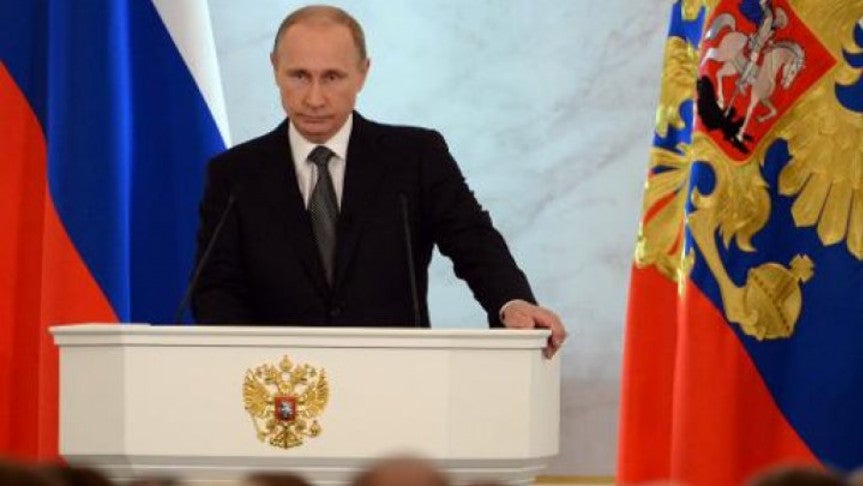"Putin has Asperger's syndrome"

Washington, US: A Pentagon study from 2008 claimed that Russian President Vladimir Putin has Asperger's syndrome, giving him a need to exert ‘extreme control’ when faced with crises, according to the report released Thursday.
Experts studying his movements and facial expressions in video footage theorised Putin's neurological development was disrupted in infancy, giving him a sense of physical imbalance and a discomfort with social interaction, according to the report by the Pentagon's internal think tank, the Office of Net Assessment.
‘This profound behavioral challenge has been identified by leading neuroscientists as Asperger's Syndrome, an autistic disorder which affects all of his decisions,’ wrote the study's author, Brenda Connors, of the US Naval War College.
‘During crisis, to stabilize himself and his perceptions of any evolving context he reverts to imposing extreme control,’ wrote Connors, who has studied the body language of other world leaders.
USA Today first revealed the study in a report Wednesday, following a Freedom of Information request.
Putin's condition also can prompt him to ‘withdraw from social stimulation as he did at the time of the Kursk nuclear submarine incident’ in 2000, when a Russian sub sank in the Barents Sea, the study claimed.
The theory about Putin's condition could not be definitively confirmed without a brain scan, the report said. But experts cited the Russian president's body movements and ‘microexpressions’ as indicators of Asperger's, a high-functioning form of autism.
Since coming to power more than a decade ago, Putin has long vexed the United States. Washington experts were taken aback by the Russian president's decision to annex the Crimean peninsula last year and back pro-Moscow separatists.
Former president George W. Bush once famously said he looked his counterpart in the eye and was able to see ‘his soul’. But the Pentagon study claimed Putin's unrelenting stare reflected a neurological abnormality and an inability to pick up on social cues.
All indications were that ‘the reports remained in the office,’ she said.
But the report's author argued that examining the body movements of leaders and their potential ‘to predict behavior and decisions is as potent an instrument as an evolving weapon system.’

 AFP
AFP




